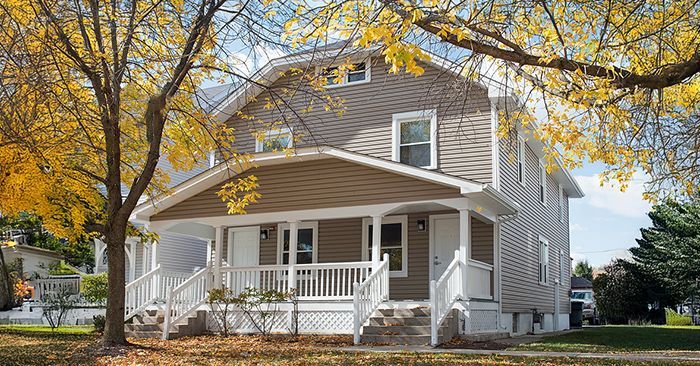By The Lighter Side of Real Estate
•
February 13, 2026
A recent Realtor.com article explored whether single-family or multifamily homes build wealth faster. Spoiler alert: it’s single-family homes. At least, that’s what the data suggests. But if you take that at face value, it can make buying a multifamily property sound like a bad decision. The truth is, there’s no way to say that’s absolutely true. Real estate values depend on too many variables to base such a big decision on a headline—or even on solid data that might be right most of the time. The right property, at the right price, in the right market could easily turn that claim on its head. The bigger question isn’t which property type performs better on average. It’s which one makes the most sense for you. For plenty of buyers, a multifamily property can actually help them build equity faster than if they bought a single-family home. In fact, it could be a smarter financial and lifestyle decision for you even if it doesn’t build more equity as quickly. Because for a growing number of buyers, it’s not just about which type of home builds equity faster. It’s about which one fits the needs of their family, or simply makes owning a home at all possible. Is a Multifamily Home Right for You? There are plenty of reasons someone might choose a multifamily property over a traditional single-family home, and it doesn’t always have to be about chasing rental income or investment returns. Of course they’re often owned by investors who are using them to generate income and build wealth, but here are a few types of buyers that also could benefit from buying one: Buyers who can’t quite make the numbers work on a single-family home. For many people, buying a single-family home just isn’t realistic right now. A duplex or triplex can make the math work by generating income from the other units. That rental income can help cover a big portion of the mortgage, sometimes bringing monthly costs down to what they’d pay in rent—or even less. First-time buyers who want to get into the market sooner rather than later. Instead of waiting and saving for years to afford a single-family home, buying a small multifamily property can be a faster entry point. Living in one unit allows you to qualify for a primary residence mortgage, which often comes with better terms than an investor loan. Multigenerational families who need both space and proximity. More families are living together these days, but that doesn’t mean everyone wants to share the same kitchen. (Or more importantly…bathrooms!) Multifamily homes let extended families live under one roof while still having privacy and independence. Buyers who want to turn their first home into a long-term investment. A multifamily home can be a stepping stone. Live in one unit for a few years, build equity, and when you’re ready to move into a single-family home, you can keep the multifamily as an income-producing property. People who simply like the flexibility. Life changes. Maybe you’ll rent out a second unit now, and in the future use it for aging parents, college kids, or a home office. Owning a property with built-in options gives you more ways to adapt as your needs evolve. Making the Best Choice Starts With an Open Mind… And Some Advice Whether you thought owning a house at all was out of the question, or buying a single-family home has been your goal, it’s worth keeping multifamily properties on your radar. They’re not just for investors or people chasing rental income—they can be a practical solution for buyers who want to own now, manage costs, and maintain flexibility for the future. The key is exploring your options thoughtfully. Every property and every market is different. What makes sense for one buyer might not for another, and the “right” choice isn’t always obvious from a quick search or a headline. That’s where a local real estate agent can make a big difference. An experienced agent can help you assess your personal situation, run the numbers on different properties, and identify which type of home aligns with your goals and lifestyle. They can also point out opportunities you might not have considered—like duplexes or triplexes in neighborhoods you already like, or properties with flexible layouts that can accommodate extended family or generate rental income. Thinking broadly and consulting an agent early on can turn what feels like a daunting decision into a clear, practical plan. Instead of limiting yourself to single-family homes, exploring multifamily options could reveal a path to homeownership you didn’t realize was available. The Takeaway: Recent data suggests that buying a single-family home will help you build equity faster than you would if you bought a multifamily. However, choosing between the two isn’t just about which one builds equity faster. It’s about what makes the most sense for your personal situation, your family’s needs, and your path to homeownership. For many buyers, multifamily properties can offer a practical, flexible, and even more attainable way to own a home today—while also creating opportunities for rental income, long-term investment, and adaptable living arrangements. The key is keeping an open mind and exploring your options. A local real estate agent can help you navigate the possibilities, run the numbers, and identify the right property for your goals.





